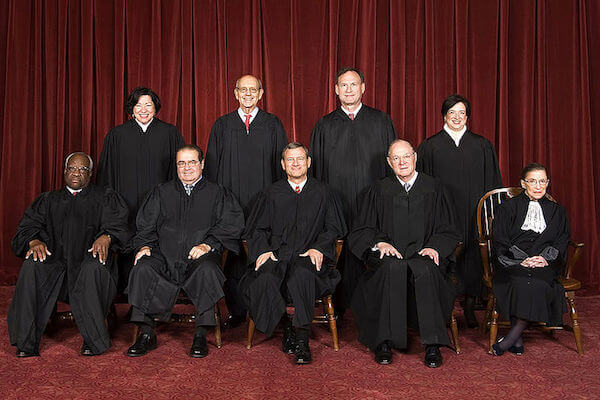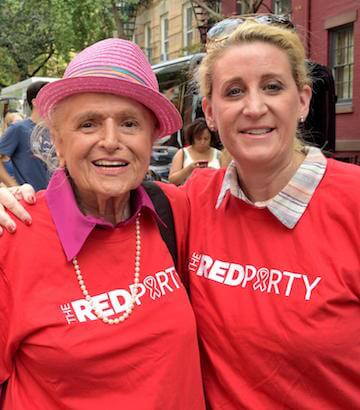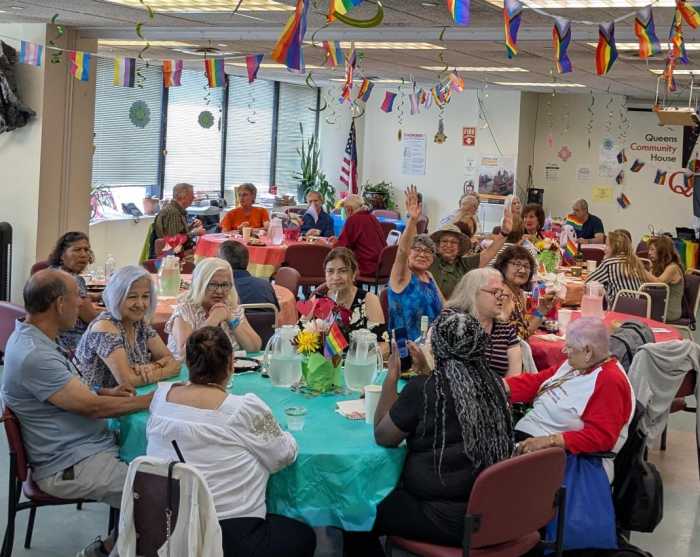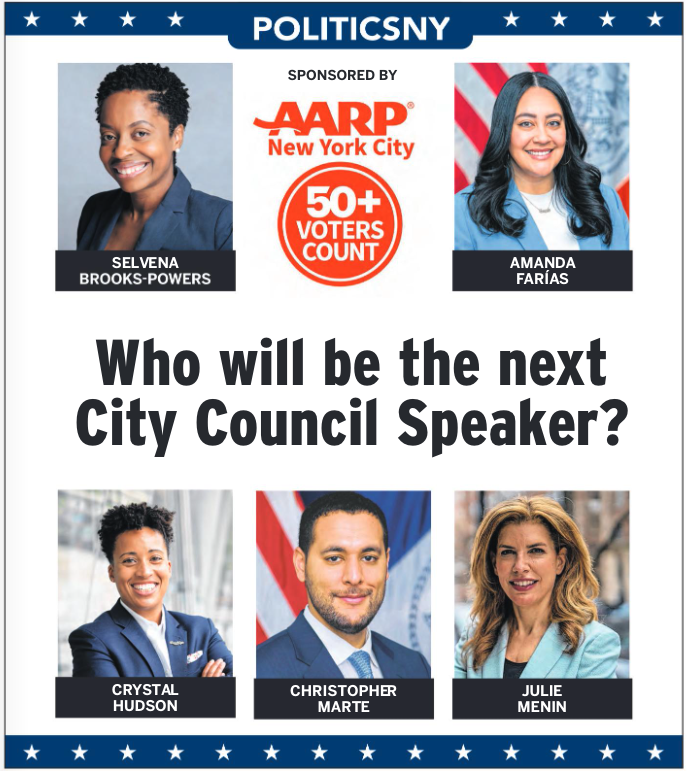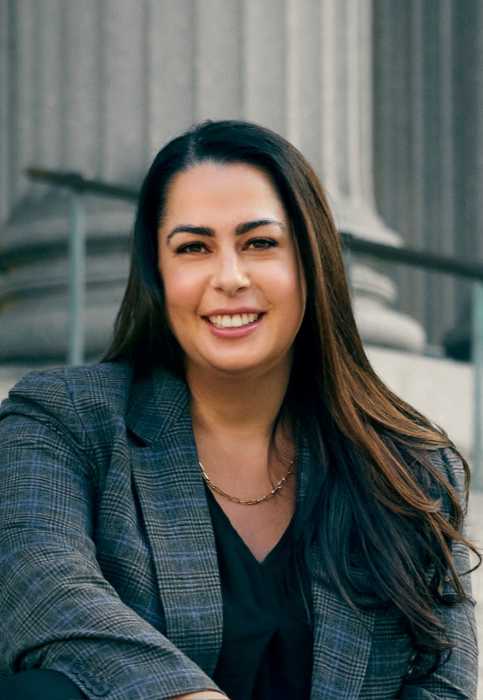BY ARTHUR S. LEONARD | In a promising case of federal courts using a “gender stereotyping” theory to provide protections for gay plaintiffs under existing sex discrimination law, a US magistrate judge has refused to dismiss a claim by a gay airline pilot that his former employer discriminated against him by misrepresenting the reason for his discharge, thus making him virtually “unemployable” in the industry.
When Congress passed the Civil Rights Act in 1964, the category of “sex” was added to Title VII’s list of forbidden grounds of discrimination as a floor amendment, so there is little legislative history to indicate specifically what Congress intended with the addition. Through the 1980s, both the Equal Employment Opportunity Commission (EEOC) and the federal courts agreed that Congress did not intend to forbid discrimination based on sexual orientation or gender identity.
This narrow view began to erode in 1989, when the Supreme Court accepted the argument that discriminating against a person because of their failure to conform to “sex stereotypes” could be a violation of Title VII. In a case filed against Price Waterhouse over a partnership promotion dispute involving a female employee, Justice William J. Brennan wrote for a plurality of the court that “we are beyond the day when an employer could evaluate employees by assuming or insisting that they matched the stereotype associated with their group… Congress intended to strike at the entire spectrum of disparate treatment of men and women resulting from sex stereotypes.”
Failure to conform to gender norms basis of sex discrimination claim against SkyWest Airlines
Taking their cue from this decision, some federal courts began to reconsider the earlier view that Title VII could not protect gay or transgender people from employment discrimination, at least in cases where the discrimination was related to a failure to comply with gender stereotypes. Within the past few years, federal appeals courts have ruled that transgender plaintiffs could bring claims under both Title VII and the Equal Protection Clause, and the EEOC changed its position regarding transgender discrimination claims a few years ago.
This evolving perspective has been slower to embrace sex discrimination claims by gay employees, but the May 11 ruling by Magistrate Judge Michael E. Hegarty of the Colorado District Court in a claim brought by Frederic Deneffe adopts an interesting theory.
According to Hegarty’s opinion, Deneffe was astonished by his sudden termination by SkyWest Airlines, because he had passed a satisfactory review and had never been in an accident. He was unable to ascertain the reason for his discharge, but when he applied to other airlines and authorized SkyWest to release his employee records as required by regulations, he was stunned to learn that the airline cited “Performance/ Inability” and indicated he was “Ineligible for Rehire.” One airline recruiter told Deneffe that “with a termination like that, we’re not going to take you,” and he has been unable to find new employment.
Deneffe asserts a very different reason for his firing, attributing it to the homophobia rife among his fellow pilots. Deneffe’s homosexuality was apparently known to some, if not all of his co-workers. He listed his same-sex partner as the beneficiary for his flight privileges with the airline when he was hired, and took one or two trips a month with him. Deneffe claims other pilots regularly saw the couple at the airport and on flights together, and that he had talked about his sexual orientation with an openly lesbian fellow pilot (who made some adverse comments about him on an evaluation form).
During many flights he piloted, Deneffe alleges, “other pilots jokingly insinuated that male flight attendants were homosexual, referring to them by the nickname of ‘Susie.’ Deneffe once heard another pilot refer to male flight attendants as ‘the little faggots who bring us our coffee.’ Other male pilots also commented, ‘I am not getting laid this trip,’ and ‘I will make sure I double lock my room,’ when only male attendants were on a flight.”
Deneffe also alleged that “male pilots regularly engaged in banter about their heterosexual exploits. At least one pilot sent him text messages detailing his sexual exploits with a woman, but Deneffe was conspicuously silent when his co-workers discussed their sexual activities with women, made homosexual jokes, or talked about their wives and children,’” according to Judge Hegarty’s opinion.
Deneffe asserted both age and sexual orientation discrimination claims, but Hegarty dismissed those based on his age for reasons not discussed in the May 11 decision.
As to the sexual orientation claim, the judge acknowledged that the Denver-based 10th Circuit Court of Appeals, whose precedents are binding on him, “has not recognized a Title VII claim for discrimination based on sexual orientation.” However, he also found that “Deneffe’s Title VII claim is premised on Deneffe’s failure to conform to gender stereotypes,” a theory recognized by the 10th Circuit in a case brought by a transgender plaintiff.
SkyWest argued that the complaint failed to state how Deneffe did not conform to male stereotypes, but Hegarty wrote, “Deneffe counters that the following allegations support his claim: (1) He did not take part in male braggodicio [sic] about sexual exploits with women as the other male pilots did; (2) he did not joke about gays as other male pilots did; (3) he submitted paperwork to SkyWest designating his male domestic partner for flight privileges, a benefit offered only for family members and domestic partners; and (4) he traveled on SkyWest flights with his domestic partner. The Court finds that these alleged facts, together with Deneffe’s allegation that the conduct by other male pilots was ‘regular,’ ‘frequent,’ and occurred during ‘many’ flights, suffice to state a plausible claim that the chief pilot submitted a negative PRIA employment reference [to other prospective employers] based on Deneffe’s failure to conform to male stereotypes.”
Hegarty noted a 10th Circuit ruling that found that an employer’s action “that does more than de minimis harm to a plaintiff’s future employment prospects” can be the grounds for a claim, even where the “plaintiff does not show the act precluded a particular employment prospect.”
Deneffe’s suit can now proceed to a trial on the facts of the case.
Deneffe is represented by Rosemary Orsini of Berenbaum Weinshienk in Denver and Subhashini Bollini of the Employment Law Group in Washington, DC.



